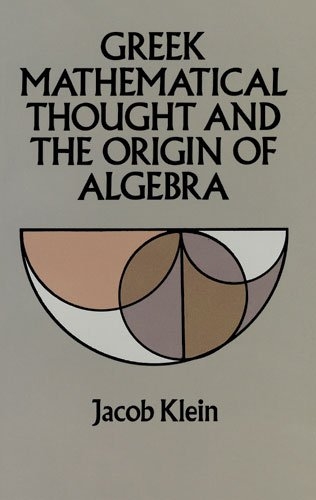Synopsis
The creation of a formal mathematical language was of decisive significance in the development of modern mathematical physics. Indeed, the creation of that formal language was identical with the foundation of modern algebra. From the thirteenth until the middle of the sixteenth century, the West absorbed the Arabic science of "algebra" (al-g'abr wa'l-mugabala) in the form of a theory of equations, probably itself derived from Indian as well as Greek sources. In particular, the influence of the Arithmetic of Diaphantus on Arabic science, in turn passed to the West, was considerable. In the last quarter of the sixteenth century the French mathematician François Vieta (1540-1603) undertook to broaden and modify Diophantus' technique in a crucial way. In the author's view, Vieta thereby became the true founder of modern mathematics.
In this fascinating study, Prof. Klein investigates the revival and assimilation of Greek mathematics in the sixteenth century from the specific standpoint of the conceptual transformation which occured in the course of that assimilation. This fundamental change in the concept of number made possible modern science - in which the symbolic "form" of a mathematical statement is completely inseparable from its "content" of physical meaning. While establishing that modern numerical concepts did not flow directly from ancient ones, the author nevertheless illuminates the Greek concept of number and the genuine Greek achievement in the theory of number. This seminal work, reprinted here complete with a translation of Vieta's Introduction to the Analytical Art, is must reading for all students and professionals in the history of science and mathematics.
In this fascinating study, Prof. Klein investigates the revival and assimilation of Greek mathematics in the sixteenth century from the specific standpoint of the conceptual transformation which occured in the course of that assimilation. This fundamental change in the concept of number made possible modern science - in which the symbolic "form" of a mathematical statement is completely inseparable from its "content" of physical meaning. While establishing that modern numerical concepts did not flow directly from ancient ones, the author nevertheless illuminates the Greek concept of number and the genuine Greek achievement in the theory of number. This seminal work, reprinted here complete with a translation of Vieta's Introduction to the Analytical Art, is must reading for all students and professionals in the history of science and mathematics.
Titre original : Die griechische Logistik und die Entstehung der Algebra (1934)
Moyenne
-
0 vote
-
1 édition pour ce livre
Qui a lu ce livre ?
Aucun membre n'a lu ce livre
Aucun membre ne lit ce livre
Aucun membre ne veut lire ce livre
Aucun membre ne possède ce livre
chronique de blog
Aucune chronique de blog pour le moment.
En vous inscrivant à Livraddict, vous pourrez partager vos chroniques de blog !



Pour poster un message, il faut être inscrit sur Livraddict
Aucun commentaire pour le moment.